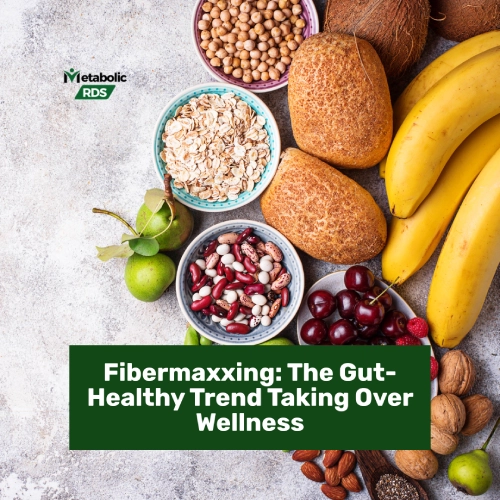By clicking “Accept All Cookies”, you agree to the storing of cookies on your device to enhance site navigation, analyze site usage, and assist in our marketing efforts. View our Privacy Policy for more information.
Intermittent Fasting: Pros, Cons, and Is It Right for Me?
govhealthcalorie-restriction-and-fasting-diets-what-do-we-know National Institutes of Health NIH Research Matters 2015, July 13.
By
February 19, 2024

There are so many different diets out there that claim to help with weight loss and disease prevention: low-fat, low-carb, ketogenic, paleo, whole 30, vegetarian, vegan, DASH, Mediterranean, MIND, etc. But I want to talk about one of the latest trends: intermittent fasting.
🍽️🔄 Let's dive in! What is "IF"?
Intermittent fasting (IF) is an eating pattern characterized by alternating periods of fasting and eating. Unlike traditional diets that prescribe specific foods, IF focuses on when to eat rather than what to eat. It's a lifestyle rather than a conventional diet plan.
Typically, intermittent fasting methods involve fasting for 16 hours each day or fasting for 24 hours twice a week. This pattern mimics the natural human ability to function without food for extended periods, a trait developed over millennia of evolution.
Historically, fasting has been part of human culture and spirituality, observed in religions like Islam, Christianity, Judaism, and Buddhism. It reflects the natural rhythm of life when access to food wasn't as consistent as it is today.
By embracing intermittent fasting, individuals tap into a more natural eating pattern that aligns with their body's evolutionary design. It offers flexibility and can be adapted to suit various lifestyles and preferences.
The Fast and the Feast: Intermittent Fasting Unveiled
Unlike traditional diets dictating what to eat, intermittent fasting takes a unique approach, focusing on when to eat. Forget calorie counting; it's all about timing. Here's the scoop: designated eating windows interspersed with fasting periods. Sounds intriguing, right?
🕰️ Intermittent Fasting Styles: Find Your Rhythm
- Time-Restricted Feeding:
- Embrace a daily eating window (8-12 hours) with water-only breaks for the rest of the day.
- Efficient, simple, and adaptable to your schedule.
- Alternate Day Fasting:
- Oscillate between "feast" and "fast" days.
- Enjoy regular meals one day, then opt for minimal calories the next.
- 5:2 Eating Pattern:
- Standard meals for five days; restrict intake to 600 calories on two non-consecutive days.
- A balanced approach to calorie modulation.
- Periodic Fasting:
- Limit calorie intake on specific days; unrestricted eating on others.
- For example, fasting for five consecutive days each month.
The Marvels of Intermittent Fasting: A Closer Look
🏋️♀️ Weight Loss Wizardry:
- Studies show comparable weight loss results, making it a contender in the diet arena.
- Appetite suppression may stem from a regulated metabolism.
🔬 Health Benefits in the Spotlight:
- Emerging research suggests potential advantages beyond weight loss.
- Markers of inflammation, blood glucose levels, and blood pressure may experience positive shifts.
🧠 Mind the Mind:
- Animal studies hint at improved exercise endurance, immune function, and potential longevity.
- A shield against diseases like diabetes, heart issues, certain cancers, and Alzheimer’s.
The Intricate Dance of Fasting and Health
⚙️ Metabolic Marvels:
- Fasting triggers a shift from burning carbs to burning fat, entering the coveted state of ketosis.
- Ketones, byproducts of fat metabolism, may contribute to enhanced cell function.
🧬 The Age-Defying Impact:
- Animal studies suggest that intermittent fasting might slow age-related genetic changes.
- The biological processes behind extended lifespans are under the research microscope.
🚨 Before You Dive In: A Word of Caution
⚠️ Health Check Alert:
- Consult your healthcare professional before embarking on any significant dietary changes.
- Not advisable for individuals with diabetes, those on specific medications, under 18, history of eating disorders, pregnant, or breastfeeding.
🩺 Side Effects Snapshot:
- Potential side effects include fatigue, weakness, headache, and reduced ability to regulate body temperature.
- Fasting can be challenging, and overindulgence on "feast" days might counteract benefits.
👩⚕️ Guiding You on Your Health Odyssey
Embarking on the intermittent fasting journey? Let's ensure it aligns seamlessly with your health goals. [Book a consultation with me] and let's chart your path to wellness.
🌿💚 Closing Thoughts: Savoring a Sustainable Lifestyle
Remember, the key to any dietary change is sustainability. Whether it's shedding pounds or fortifying your health fortress, intermittent fasting might be your ally. However, individual responses vary, so consulting a healthcare professional is paramount.
Book your appointment now and let's sculpt a healthier, vibrant you!
Work with Us
To register for the Facebook Group
Online Programs, Packages & Courses

References:
Harvard Health Publishing. (2017, January). Any benefits to intermittent fasting diets? Retrieved from
https://www.health.harvard.edu/diet-and-weight-loss/any-benefits-to-intermittent-fasting-diets
Harvard Health Publishing (2018, June 29). Intermittent fasting: Surprising update. Retrieved from https://www.health.harvard.edu/blog/intermittent-fasting-surprising-update-2018062914156
Harvard Health Publishing. (2019, July 31). Not so fast: Pros and cons of the newest diet trend. Retrieved from https://www.health.harvard.edu/heart-health/not-so-fast-pros-and-cons-of-the-newest-diet-trend
Mayo Clinic. (2019, January 9). Fasting diet: Can it improve my heart health? Retrieved from https://www.mayoclinic.org/diseases-conditions/heart-disease/expert-answers/fasting-diet/faq-20058334
Mayo Clinic. (2019, August 14). Mayo Clinic Minute: Intermittent fasting facts. Retrieved from https://newsnetwork.mayoclinic.org/discussion/mayo-clinic-minute-intermittent-fasting-facts/
National Institutes of Health National Institute on Aging. (2018, August 14). Calorie Restriction and Fasting Diets: What Do We Know? Retrieved from
https://www.nia.nih.gov/health/calorie-restriction-and-fasting-diets-what-do-we-know
National Institutes of Health NIH Research Matters (2015, July 13). Health Effects of a Diet that Mimics Fasting. Retrieved from https://www.nih.gov/news-events/nih-research-matters/health-effects-diet-mimics-fasting
National Institutes of Health NIH Research Matters. (2017, September 26). Calorie restriction slows age-related epigenetic changes. Retrieved from https://www.nih.gov/news-events/nih-research-matters/calorie-restriction-slows-age-related-epigenetic-changes
National Institutes of Health NIH Research Matters (2018, March 6). Intermittent dietary restriction may boost physical endurance. Retrieved from
https://www.nih.gov/news-events/nih-research-matters/intermittent-dietary-restriction-may-boost-physical-endurance
National Institutes of Health NIH Research Matters (2018, September 18). Fasting increases health and lifespan in male mice. Retrieved from
https://www.nih.gov/news-events/nih-research-matters/fasting-increases-health-lifespan-male-mice
NIH Intramural research program. (2018, March 13). Intermittent Fasting Boosts Endurance in Mouse Marathoners. Retrieved from
https://irp.nih.gov/blog/post/2018/03/intermittent-fasting-boosts-endurance-in-mouse-marathoners
NIH National Center for Advancing Translational Sciences. (2018, August). NCATS-Supported Study Shows Eating Before 3 p.m. Can Improve Health. Retrieved from
https://ncats.nih.gov/pubs/features/ctsa-kl2-fasting





